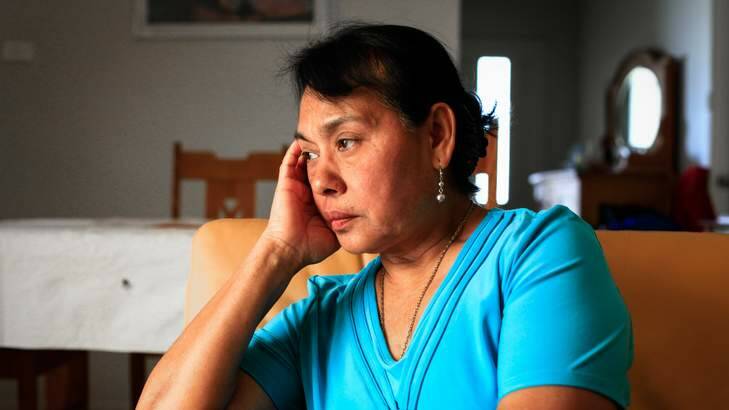A MAID sacked by the Peruvian embassy in Canberra is facing possible deportation amid claims she was mistreated by her employer.
Subscribe now for unlimited access.
or signup to continue reading
The woman will be in breach of her visa conditions from Sunday.

Maria Nelida Paz Mori has complained to the Department of Foreign Affairs and Trade, but the embassy has described as baseless the allegations she has made.
One legal expert says the case shines a light on the poor conditions imposed on many embassy workers by their countries.
Ms Paz Mori, speaking through an interpreter, said she had been denied food, medical aid and had never been paid her superannuation contributions, which she said totalled tens of thousands of dollars.
Ms Paz Mori, 65, who had worked at the embassy since 2007 and has poor literacy skills, said, when she complained, staff tried to get her to sign documents without reading them, then fired her without notice and threatened her with deportation.
''They said they cared for me and they didn't want that [deportation] to happen so they tried to give me a cheque for almost $2500 and a plane ticket and $50 cash for the taxi,'' she said.
She said she had been unfairly accused of stealing from the embassy and had her integrity attacked.
DFAT said it was aware of the situation but it would be inappropriate for the Australian government to comment.
''She was provided with general advice on the role of the Fair Work Ombudsman and it was suggested she consider seeking private legal advice on her options,'' the DFAT spokeswoman said.
Peruvian embassy charge d'affaires Franklin Rojas rejected the allegations and stood by the accusation that Ms Mori had stolen from the embassy.
Mr Rojas said no money was outstanding and her claim for more than $90,000 appeared to be wrongly based on Australian pay conditions and a promotion that was never granted.
He said Ms Mori had medical insurance with BUPA while working at the embassy and had been provided top-quality food.
''If she wants to complain about her treatment she can do so freely to the Peruvian authorities,'' Mr Rojas said. ''It appears as though she is trying to extend her time in Australia. As far as we are concerned, this [matter] is finished.''
Mr Rojas said he spent three hours with her explaining the documents he wanted her to sign, which related to the final money she was to be paid.
Lawyer and immigration expert Owen Harris said Ms Paz Mori's visa did not expire until December next year, but she would be in breach for not having a job.
''She's a Peruvian citizen working for her embassy so the Australian Fair Work Act doesn't apply, '' Mr Harris said. ''In theory DFAT can apply pressure to encourage a fair deal for embassy workers.
''How effective this is is hard to gauge. But based on the frequency of complaints our firm sees, perhaps more could be done.
''Australia has a proud tradition of protecting our workers and paying a fair wage for a fair day's work, and we expect our friends to do the same when here.''
He said this most recent case was just the tip of the iceberg.
‘‘As migration agents this is the stuff we hear every few months from [embassy] workers ... Where an Embassy is hiring its own citizens there is little we can do to protect that worker.
''Where they hire citizens from other countries there are actions that can be taken but it’s a hard and expensive path.
''Often the client is caught between [the Department of Immigration and Border Protection] cancelling their visa and asking them to leave, the embassy firing them for daring to ask for what is owed to them.
''Sometimes the client has little choice but to stay here unlawfully while they take legal action they can’t really afford, with the charities and lawyers acting pro bono.’’
Ms Paz Mori is staying with friends in Canberra but has no income and no plane ticket home.
“I feel very nervous about what is happening right now and I don’t feel like the Australian Government is helping,’’ she said.
“[I took the job] to support my children and grandchildren and to ensure my pension and my home when I retire.’’

